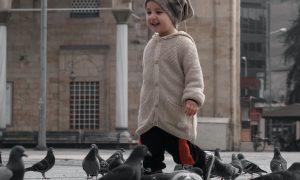The apparent ease with which pedophiles and child molesters are able to access and abuse children have sparked great concern among parents, educators and medical professionals.
Children, especially the younger ones, have little or no inkling whatsoever about the dangers they might be in.
I had the opportunity to ask Dr Ariza Mohamed, a consultant gynaecologist and obstetrician to highlight some key concerns about ‘privacy education’ – teaching children what is private and what can be shared with others. This is a crucial part which parents must know, so that they can teach their children as early and as sensitively as possible, to reduce the risk of abuse within and outside of the family.

JS: Please tell us about yourself, your personal and professional backgrounds.
AM: I am an Obstetrician and Gynaecologist. I deal with delivery of babies and women gynaecological problems.
JS: What is privacy education?
AM: Privacy education is an education that teaches children what is private, what can be shared and what should not be shared. It teaches boys and girls to understand about limits and boundaries in a relationship. It also educates them on knowing their personal space, knowing their rights and knowing when it has been violated and making the right choice. Finally it also develops haya’ or shyness to do things beyond what is expected in culture and religion.
JS: Why is it particularly relevant today?
AM: It is most relevant today because we see very young children being abused by adults. These boys and girls sometimes do not understand and feel confused by what is happening to them, they were not taught of their personal space, of safe and unsafe touch and what to do to prevent something bad from happening to them.
Some girls on the other hand, do not appreciate their privacy. They expose themselves unnecessarily and beyond acceptable limits and putting themselves at risk of rape and sexual abuse.
Some girls willingly expose themselves on the internet without hesitation. They do not care about their privacy and let others manipulate them.
JS: Who should care about privacy education? Why?
AM: Parents and teachers as well as pre-school teachers should be taught about privacy education. Boys and girls should be taught by age four onwards about their private parts. About safe and unsafe touch.
Mothers and fathers should ask permission from children, both boys and girls, if they need to remove his/her shirt or trousers or skirts. Done from an early age, it will help develop a kind of basic response in the children. They know that even their parents will ask permission before undressing them. They will know their body parts especially their private parts are under their control and nobody should touch, see or photograph them unnecessarily.
Young boys and girls should be taught early to wash themselves, to dress up on their own. They are taught to YELL, RUN and TELL if they have been in any way approached wrongly. Teaching privacy education will help them make the right decision.
JS: How has your professional background coloured your interest in privacy education?
AM: In my practise I sometimes see girls who have made a wrong decision when they befriend wrong friends and the consequences of that. It hurts me to see this.
JS: What are the most important things parents should know about privacy education?
AM: Parents should be more aware of their responsibilities in keeping their children safe, healthy and happy. Parents should talk to children so children feel that their parents care about them. Statistics have shown that most of the teenagers who were involved in vice are those with loose family relationship or come from broken families.
JS: Can you share with us relevant references, if any (websites, books etc).
AM: The Holy Quran, ‘Privacy Education for Children’ by Adam Gunes, ‘Boundaries in A Relationship’ by Dr Nan Stein.
Read the article in Malay: Haya’ – Ajar Anak Pelihara Maruah Sejak Kecil









